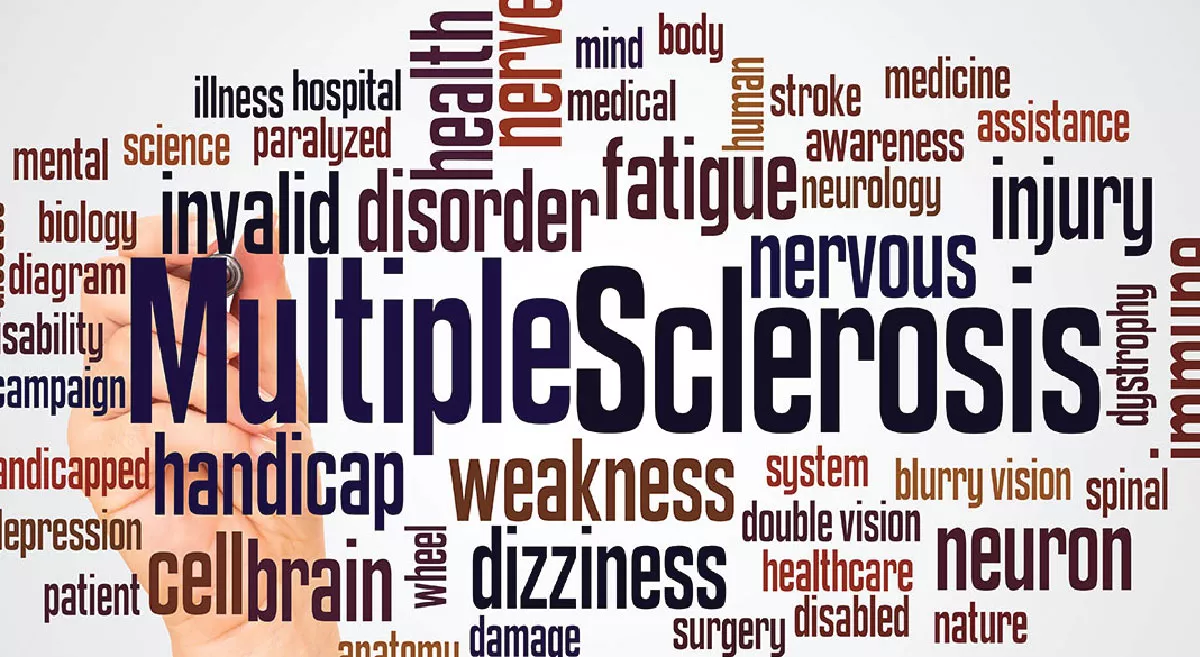Common symptoms of Multiple sclerosis are numbness/sensory loss or Para Anesthesia in limbs or face, Vision loss, weakness of one arm or leg or all 4 limbs, double vision, Imbalance while walking.Bladder problems(Difficulty in holding or passing urine), Current like sensation running down the spine on neck movements. These symptoms are usually sub-acute (few days to weeks) in onset.Important thing is to differentiate these symptoms from symptoms of stroke. Stroke symptoms are hyper acute in onset, i.e, onset in seconds to minutes while Multiple Sclerosis symptoms are sub-acute in onset.
Causes of Multiple Sclerosis :
Multiple Sclerosis is an autoimmune disease.The immune cells of body react with our own tissue ultimately leading to Multiple Sclerosis.Why some patients get Multiple Sclerosis is not absolutely clear. However, There are some risk factors for development of Multiple Sclerosis.
Genetic: Multiple Sclerosis may be related to genetic make up of an individual leading to increase in auto immunity
Infections: Some viral infections are linked to development of Multiple Sclerosis -Epstein-Barr virus, Human herpes virus-6.
Smoking-Increases the risk of Multiple Sclerosis
Vitamin D deficiency has also been linked to development of Multiple Sclerosis.
How does Multiple Sclerosis affect Brain :
In Multiple Sclerosis, there is loss of Myelin in the brain and or spinal cord. Myelin is insulating covering around the nerves. Due to loss of Myelin(insulating covering) around the nerves, the current or signals flowing through the nerves is short circulated through the damaged region leading to symptoms of Multiple Sclerosis. Significant damage to Myelin can lead to loss of damaged nerve fibre.
How common is Multiple Sclerosis :
Multiple Sclerosis in India ranges from 7-30 per lakhs population according to different studies.
Treatment Options for Multiple Sclerosis :
Treatment options for Multiple Sclerosis includes
- Platform Injections: Interferon Beta, Glatiramer acetate. They are among the first drugs approved for MS treatment. Therefore, they are called platform therapies.They are given through subcutaneous or intramuscular route.
- Oral Therapies: Dimethyl Fumarate, Teriflunomide, Fingolimod, Cladribine etc are oral therapies available for treatment of MS.
- Monoclonal Antibodies: Natalizumab, rituiximab, Ocrelizumab, alemtuzumab are some of the Monoclonal antibodies. they are given as intravenous injections periodically.However, Your doctor will discuss with you regarding medicines after diagnosis of Multiple Sclerosis and these medicines should not be administered without medical advise.
Diet for Multiple Sclerosis :
Balanced diet have an add on value in a more efficient management of the disease overall. Existing evidence indicates that nutrition and diet may play a role in multiple Sclerosis pathogenesis and course. These factors may affect gut function, enzyme activity, and risk factor in Multiple Sclerosis patients. At the moment, precise recommendations regarding a specific dietary plan in patients with Multiple Sclerosis do not exist.
However, clinical and experimental studies provide indirect evidence that a balanced diet in combination with an overall healthy lifestyle is linked with an improvement in several clinical parameters as well as measurements of quality of life for patients with Multiple Sclerosis.
Importance of lifestyle changes in Multiple Sclerosis :
Importance of lifestyle changes in Multiple Sclerosis can be understood as a concept of CNS reserve. As it is affecting our brain neurons, we have to preserve the neurons who are healthy and healthy lifestyle help in doing that.
Some lifestyle changes that are beneficial in Multiple Sclerosis are weight management, stopping alcohol and Tobacco abuse, healthy and balanced diet, Sleep hygiene and physical exercise also needs to be maintained.





